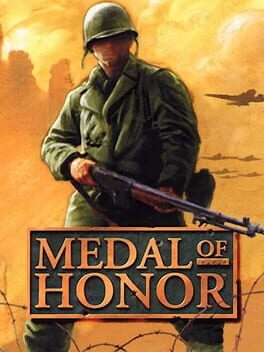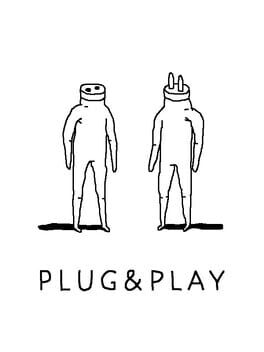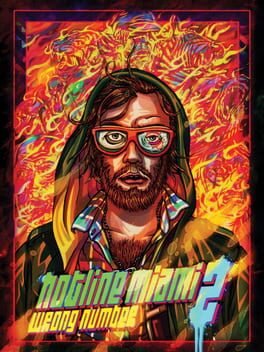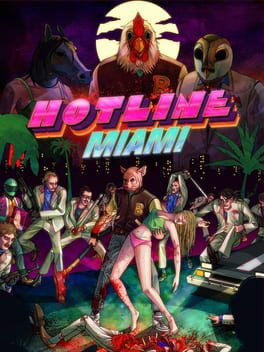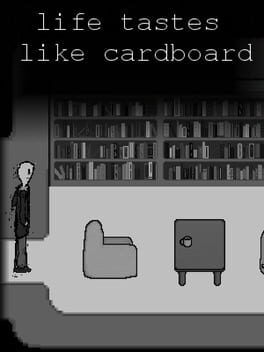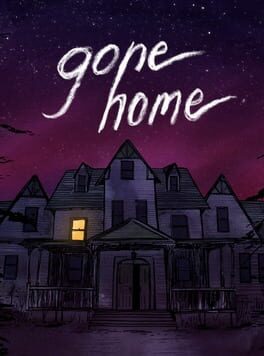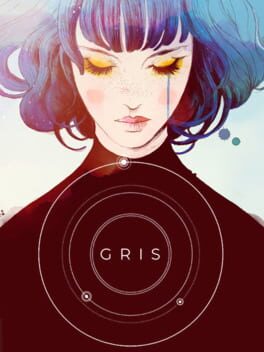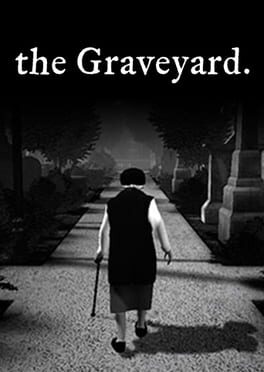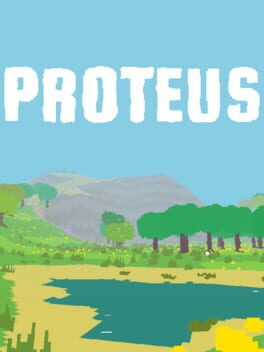JosephineD
1999
Don't know how surprising it is that the first Call Of Duty is more Spielbergian than a game with a story written by Spielberg himself and under his company’s label, but God, does the self-seriousness of war fps aiming for this sense of historical fidelity clashing with mechanics that aim for a more adventurous tone make this one as insufferable as the worst that the berg's work can get.
2015
I can't help but surrender to its ambitions.
Has less in common with the 80s and 90s films its constantly referencing and more with tv projects like the second season of True Detective or Lynch and Refn's recent ventures in the medium. It's specially interesting how much Dennaton is capable to channel Refn to a point where this and Too Old To Die Young share some of the same thematic elements: from the increasing pressence of nationalist movements in US to the overall depiction of violence as some sort of comfrontation for the viewer's accomodated expectations of it in the medium.
Flawed to the core. Where the barebones of a narrative worked for the first game's own deconstruction and exploration of the vacous nature of its protagonists, here it plants so many threads it feels mostly loss of what it wants to develop, not because is really that difficult to understand, but because of its adherence to explore/connect the audience to these characters that feel less compelling in their archetypical nuisances, and the design of the levels can be really frustrating at times. By making these spaces more open, it also makes one of the first game's way to make the player more adjust to it (being able to create you own path to finish it) less effective. Instead, it seems that it wants you to go more for stealth and mantaining an active approach, to be contantly urgent and knowledgeable of the enemy placement, and i love that this develop into making these space more oppresive for the players to explore and limiting the options to these individual characters as their own form of expression through the violence (specially that one of the characters can't kill if you didn't pressure him to make the game easier), but when it does it wrong, it limits our vision badly, making the option of looking beyond the established field of view an afterthought: where we can kill an enemy in one point of the map, but our behind is constantly exposed or we don't have enough view to avoid getting shot and/or take cover on time when we are in front of them.
For the rest, i love that it's essentially about sequels, more or less about the exploitation of its own metanarrative being constantly appropiated to continue the satisfaction of its audience. Jacket is nothing more than an inspiration for wannabes who do nothing but projecting a way to escape from the roles that the zeitgeist have placing them or abusing the power that they are already given by the narrative itself.
But i think is the end when the game completely adheres to this idea the most. Finds the sense of going back to the past without any sort of futility to explore the present as some kind of meaningless endeavour. It's more thematically exposed than its predecessor and i found this game surprisingly melancholic in its final stages because of it. Jacket and Biker can retroactively change their own path for their own benefit, no matter how dissapointing the end result may be. Here, every effort is pointless in the long run. Almost no one comfronts what they are as individuals, don't go against the narrative at play, but are trustworthy to it until it catches them and devalues them to simple images, npcs and enemies to defeat.
Makes the end of the world a beautiful conclusion in which even the illusion of another title screen give a sense of hope that the own player can make the better call.
Has less in common with the 80s and 90s films its constantly referencing and more with tv projects like the second season of True Detective or Lynch and Refn's recent ventures in the medium. It's specially interesting how much Dennaton is capable to channel Refn to a point where this and Too Old To Die Young share some of the same thematic elements: from the increasing pressence of nationalist movements in US to the overall depiction of violence as some sort of comfrontation for the viewer's accomodated expectations of it in the medium.
Flawed to the core. Where the barebones of a narrative worked for the first game's own deconstruction and exploration of the vacous nature of its protagonists, here it plants so many threads it feels mostly loss of what it wants to develop, not because is really that difficult to understand, but because of its adherence to explore/connect the audience to these characters that feel less compelling in their archetypical nuisances, and the design of the levels can be really frustrating at times. By making these spaces more open, it also makes one of the first game's way to make the player more adjust to it (being able to create you own path to finish it) less effective. Instead, it seems that it wants you to go more for stealth and mantaining an active approach, to be contantly urgent and knowledgeable of the enemy placement, and i love that this develop into making these space more oppresive for the players to explore and limiting the options to these individual characters as their own form of expression through the violence (specially that one of the characters can't kill if you didn't pressure him to make the game easier), but when it does it wrong, it limits our vision badly, making the option of looking beyond the established field of view an afterthought: where we can kill an enemy in one point of the map, but our behind is constantly exposed or we don't have enough view to avoid getting shot and/or take cover on time when we are in front of them.
For the rest, i love that it's essentially about sequels, more or less about the exploitation of its own metanarrative being constantly appropiated to continue the satisfaction of its audience. Jacket is nothing more than an inspiration for wannabes who do nothing but projecting a way to escape from the roles that the zeitgeist have placing them or abusing the power that they are already given by the narrative itself.
But i think is the end when the game completely adheres to this idea the most. Finds the sense of going back to the past without any sort of futility to explore the present as some kind of meaningless endeavour. It's more thematically exposed than its predecessor and i found this game surprisingly melancholic in its final stages because of it. Jacket and Biker can retroactively change their own path for their own benefit, no matter how dissapointing the end result may be. Here, every effort is pointless in the long run. Almost no one comfronts what they are as individuals, don't go against the narrative at play, but are trustworthy to it until it catches them and devalues them to simple images, npcs and enemies to defeat.
Makes the end of the world a beautiful conclusion in which even the illusion of another title screen give a sense of hope that the own player can make the better call.
2012
i always found the talk around its depiction of violence the most boring aspect of the game. It isn't bad per se, but with games like this or Spec Ops: The Line, i always found the setting (here, the 80s far remove from simple aestheticism, with the underlaying pressence of the Cold War and class dynamics as contrast of both protagonits) and the way in which we become part average videogame vessel and part conspiranoid interpreter of the game itself what attracts me the most.
It's all about how Jacket and Biker engage with their own violent travesy, where one tries to find a way to reconnect with the world only to realize that he's so far remove from the picture that he leaves it away in the air, and the other subdues to tentation of everything having a literal explanation. In that case, Jacket is reborn in Biker and, with that, the conclusion of both killing each other makes both journeys equally valid and meaningless. It recognizes us as active participants and spectators of the fiction at play, but it also understands how, to give meaning, we have to erase the most literalize aspects of it and perceive it as the fully realize metaphor that they are as individuals in the big picture.
Does the abstraction clash with the secret ending literalizing everything? Sure. But i think that the idea that's even optional is a step towards the overall message.
It was a "revenge story" with none of the moralist bullshit, born out of an inherent nationalistic perspective (killing russians, the villians plan being basic world domination stuff) and one in which we are small compared to the big landscape in which it was developed, with no other choice than to accept it and, no matter how many time we either try to complacent to the status quo or trying to change it (as Biker, we can kill all the people in the Phone company as we once seen as Jacket and mantain the "coherence" of the fiction, or leave them alive with zero repercution), it will find a way to keep going forward and accomodate us.
It's all about how Jacket and Biker engage with their own violent travesy, where one tries to find a way to reconnect with the world only to realize that he's so far remove from the picture that he leaves it away in the air, and the other subdues to tentation of everything having a literal explanation. In that case, Jacket is reborn in Biker and, with that, the conclusion of both killing each other makes both journeys equally valid and meaningless. It recognizes us as active participants and spectators of the fiction at play, but it also understands how, to give meaning, we have to erase the most literalize aspects of it and perceive it as the fully realize metaphor that they are as individuals in the big picture.
Does the abstraction clash with the secret ending literalizing everything? Sure. But i think that the idea that's even optional is a step towards the overall message.
It was a "revenge story" with none of the moralist bullshit, born out of an inherent nationalistic perspective (killing russians, the villians plan being basic world domination stuff) and one in which we are small compared to the big landscape in which it was developed, with no other choice than to accept it and, no matter how many time we either try to complacent to the status quo or trying to change it (as Biker, we can kill all the people in the Phone company as we once seen as Jacket and mantain the "coherence" of the fiction, or leave them alive with zero repercution), it will find a way to keep going forward and accomodate us.
My experience with this game can be resume with a part in Chapter 6. I was quite emotionally exhausted by that point in the game and getting lost in another world, another manifestation of the protagonist's own emotional struggle, didn't help, but then i found a npc and when i interacted with it, it said: "It's nice to be lost sometimes." and i found that inmessively conforting in a way that few games have made me feel. It helped me getting through the rest of it.
2013
Coming back to this was like returning to Richard Linklater's Boyhood, Joanna Newsom's The Milk-Eyed Mender, and Abel Ferrara's 4:44 Last Day on Earth, all at the same time.
Beautiful metaphysics to say the least. It's a great ghost story because it understand how to movilize the player through its immediacy, in constant battle between a now and then where the former visualizes interaction as a transfigurations of people who are either dead or distanced enough that lack of familiarity and recovery of information feels as ancient as they are prescient through repetition and (un)availability of both essential and inessential matter to its main thesis (Terrence Greenbriar, especially, comes off as the most human of the cast to me in its laborous attempts to resolve his marriage, find ways to escape his troubles through variants like alcohol and adult magazines that are as hidden as they are at plain view to the player, the indirect effects it creates to his own daughter and our own incapacity to understand the full extend of what his relation between his personal life and his work are the ones that he's dealing with and what even those aspects might be (the less i read about Oscar Masan, the better)) while the later fools us into thinking that what we are doing is what the protagonist is experiencing in the moment just so the ending makes both instances interchangeable, making the act of searching for a point an unlineairity that elevates the romanticism of a young rebelious love the memories that let to the acceptance of both the player and the protagonist of an ideal view outside the unknowable and warmth (yet sometimes oppresive) force that is the house itself.
Beautiful metaphysics to say the least. It's a great ghost story because it understand how to movilize the player through its immediacy, in constant battle between a now and then where the former visualizes interaction as a transfigurations of people who are either dead or distanced enough that lack of familiarity and recovery of information feels as ancient as they are prescient through repetition and (un)availability of both essential and inessential matter to its main thesis (Terrence Greenbriar, especially, comes off as the most human of the cast to me in its laborous attempts to resolve his marriage, find ways to escape his troubles through variants like alcohol and adult magazines that are as hidden as they are at plain view to the player, the indirect effects it creates to his own daughter and our own incapacity to understand the full extend of what his relation between his personal life and his work are the ones that he's dealing with and what even those aspects might be (the less i read about Oscar Masan, the better)) while the later fools us into thinking that what we are doing is what the protagonist is experiencing in the moment just so the ending makes both instances interchangeable, making the act of searching for a point an unlineairity that elevates the romanticism of a young rebelious love the memories that let to the acceptance of both the player and the protagonist of an ideal view outside the unknowable and warmth (yet sometimes oppresive) force that is the house itself.
2018
Not mad, just disappointed.
Wish the game limited itself to be a mood, because the mechanics and platform feel mostly intrusive to the overall experience. Rather than feeling like playing inside someone’s headspace or exploring another world, most of the transitions from space to space are kind of inconsequential, mostly incoherent tangents between the human-made architecture and the naturalistic and populated valleys that we descend at one point, and the way it wants to integrate the player to them feel so artificial, where everything mostly exist as literalize obstacles, but never fully commits to understand the feeling of its protagonist through the setting (It barely matters wether the game is really about grief or just a bunch of vague concepts relating to explorations of female identity through a hyper classicist conundrum via a decaying civilization; it’s mostly preoccupied with looking pretty to even bother to express something with those scenarios or they become so reiterative any point they want to express becomes hollow by the end) or to fully integrate this in the gameplay (we are never really in danger; even when the black oil is attacking us, we only stop to watch a scripted sequence where the sense of fear and vulnerability that tries to express is never conveyed in the controls and gets worse the moment we transition to the next stage, where we become more powerful the more we progress instead of giving time to process these different situations).
Occasionally, little moments pop up between the messy execution. An example is when we get friendly with a creature that imitates our movements, a part where the game ask the player to create a bond through the action-reaction of the creature and the protagonist, and it’s cute in its barebones didacticism. But then that relationship ends up being less an tissue to understand any idea of what the girl is going through as much as it really is the path for a new item so we can get to the next stage of the game. It doesn’t matter that we are literally visiting its home, because the game feels indifferent to this space or the beings who inhabited. Traduces an intimate connection with complete apathy, which is a good metaphor for the game itself.
Wish the game limited itself to be a mood, because the mechanics and platform feel mostly intrusive to the overall experience. Rather than feeling like playing inside someone’s headspace or exploring another world, most of the transitions from space to space are kind of inconsequential, mostly incoherent tangents between the human-made architecture and the naturalistic and populated valleys that we descend at one point, and the way it wants to integrate the player to them feel so artificial, where everything mostly exist as literalize obstacles, but never fully commits to understand the feeling of its protagonist through the setting (It barely matters wether the game is really about grief or just a bunch of vague concepts relating to explorations of female identity through a hyper classicist conundrum via a decaying civilization; it’s mostly preoccupied with looking pretty to even bother to express something with those scenarios or they become so reiterative any point they want to express becomes hollow by the end) or to fully integrate this in the gameplay (we are never really in danger; even when the black oil is attacking us, we only stop to watch a scripted sequence where the sense of fear and vulnerability that tries to express is never conveyed in the controls and gets worse the moment we transition to the next stage, where we become more powerful the more we progress instead of giving time to process these different situations).
Occasionally, little moments pop up between the messy execution. An example is when we get friendly with a creature that imitates our movements, a part where the game ask the player to create a bond through the action-reaction of the creature and the protagonist, and it’s cute in its barebones didacticism. But then that relationship ends up being less an tissue to understand any idea of what the girl is going through as much as it really is the path for a new item so we can get to the next stage of the game. It doesn’t matter that we are literally visiting its home, because the game feels indifferent to this space or the beings who inhabited. Traduces an intimate connection with complete apathy, which is a good metaphor for the game itself.
2008
"The biggest problem seemed to be that the people we asked didn't appreciate the fact that the game only generated questions and did not supply any answers. They seemed to think of art as a kind of riddle that they needed to solve. But we only asked people who are used to playing games.[...]Despite the fact that games are supposed to be interactive, many gamers still seem to be incredibly passive when it comes to the meaning of their entertainment. They expect to be spoonfed and don't seem to have any experience with literature, modern theater or fine art (or even art films) which require active participation, not just of thumbs and index fingers but also of heart and brain." - Auriea Harvey and Michaël Samyn, creators of the Graveyard
1993
Starting from the oppresive and cold facilities of Mars before everything takes clear form as the body horror-esque nightmares of hell paints the walls and floors that we navigate, it's the ultimate power fantasy.
Not only a great actioner, but also very uncomfortable in its progression and occacionally anxious when it gets closer to the horror of the concept. Looking at the lamented souls and visceras of our fallen allies complemented with the carnage that we produce creates a sort of unpleasantness that (intentional or not) tells us the kind of character we are making in the process. We are as much fighting evil as we are becoming one with it. And wether by lack of vision (the darkness in some sections of "The Shores of Hell" that channel Ridley Scott's Alien) or the direct result of faicing flesh and metal as one manifestation of the militaristic desire of being the savior of the universe, one thing is clear to me: the demented face of Doomguy pleased after finding another powerful weapon is my sleep paralysis demon.
Not only a great actioner, but also very uncomfortable in its progression and occacionally anxious when it gets closer to the horror of the concept. Looking at the lamented souls and visceras of our fallen allies complemented with the carnage that we produce creates a sort of unpleasantness that (intentional or not) tells us the kind of character we are making in the process. We are as much fighting evil as we are becoming one with it. And wether by lack of vision (the darkness in some sections of "The Shores of Hell" that channel Ridley Scott's Alien) or the direct result of faicing flesh and metal as one manifestation of the militaristic desire of being the savior of the universe, one thing is clear to me: the demented face of Doomguy pleased after finding another powerful weapon is my sleep paralysis demon.
2013
I can't believe watching the days go by so quickly or just an owl flying from tree to tree almost made me cry.
Maybe utopian? Environmentalist by design, but i just love that, through its limitation, it highlights the relationship between the player and the space as one that can be as exclutionary as in need of the other for their own existence, pixels as the projection that we give to certain objects prior to being cemented by the game as something perfunctory or more complex throught its abstraction, and give the opportunity to be familiar with almost all of it, being washed by this landscape that invites me to explore or just leave behind any sense that everything will end or the need of a bigger purpose to begin with, despite that this will had an endpoint no matter what.
It's being a long time since i played a game and this just give me the reason why should i try again with them, a starting point for what are and what could be my sensibilities in regard of this artform.
Maybe utopian? Environmentalist by design, but i just love that, through its limitation, it highlights the relationship between the player and the space as one that can be as exclutionary as in need of the other for their own existence, pixels as the projection that we give to certain objects prior to being cemented by the game as something perfunctory or more complex throught its abstraction, and give the opportunity to be familiar with almost all of it, being washed by this landscape that invites me to explore or just leave behind any sense that everything will end or the need of a bigger purpose to begin with, despite that this will had an endpoint no matter what.
It's being a long time since i played a game and this just give me the reason why should i try again with them, a starting point for what are and what could be my sensibilities in regard of this artform.
